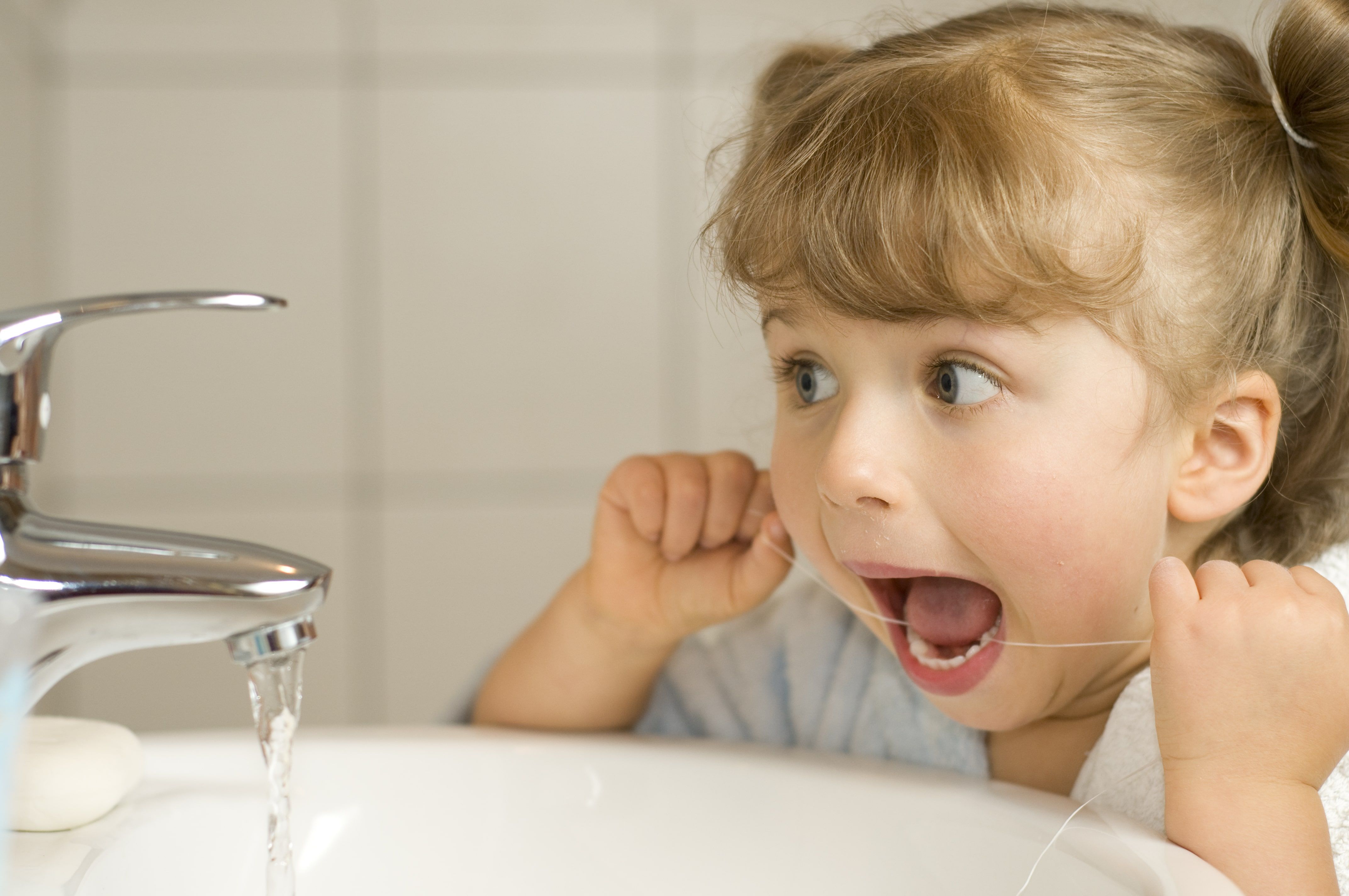When To Start Flossing

We all know that flossing daily is an important practice to maintain dental health. Flossing, in addition to brushing, helps to keep our teeth clean and healthy. But, when should children start flossing their teeth? The answer is as soon as they have enough teeth to floss.
Generally speaking, children will get all of their baby teeth anywhere between the ages of two and six. Once these teeth erupt and are touching each other, flossing will become necessity. Of course, children develop these teeth before they develop the ability to take care of these teeth. That’s why it is up to the parents to ensure that their child is receiving proper daily dental care. In addition to brushing their teeth everyday, parents should also stress the importance of flossing at least once a day.
Some people may think that flossing for children is not important since baby teeth are only temporary and are eventually lost. However, this is not the case. Even though baby teeth will be lost, flossing serves two purposes. First, it establishes good oral habits at a young age that can be carried into adulthood. Secondly, it prevents dental issues like tooth decay or gum disease, which can still be serious even with baby teeth.
There is no special type of floss for children, although there are certain types that may be preferred for different reasons. For example, the smooth floss is easier to hold onto and floss picks are especially helpful for those kids who squirm while flossing. Most of the time, good-old dental floss will do the trick.
In order to maximize your flossing technique, you will want to use about eighteen inches of floss stretched between your index finger and thumb. Start by curving the floss around the base of each tooth and then sliding it gently up and down between teeth. Sometimes this can cause the gums to bleed, but this is normal and will eventually decrease as the gums become more accustomed to flossing.
Once children get old enough to floss on their own, they will have to learn the proper technique. Most kids can handle their own flossing around the age of seven, but this varies among individuals. Some children may not like flossing and may need extra motivation.
If a child is resistant to flossing, there are a few things that can help motivate them. The first is to let them pick out their own dental tools. Get them excited about a toothbrush with their favorite cartoon or a different flavor of toothpaste, then lump floss in with the excitement. This excitement can also be carried over into the act of brushing and flossing. Have everyone brush and floss together, and do things like make funny faces, host a contest, or play music to make brushing and flossing an exciting event the kids will look forward to every night.
Eventually children will begin to realize the importance of flossing and it will simply become a part of their daily routine. It is very important to start good dental habits early with children so that they can carry these positive dental habits into adulthood.

